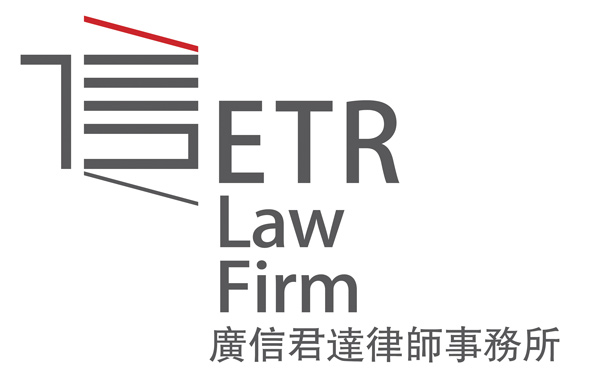In recent years, prosecutors have been testing out a so-called “criminal compliance non-prosecution” system in some corporate criminal investigations, where they opt not to make arrests or take court action, or they recommend a more lenient sentence, if the company rectifies its operations to ensure they are lawful and compliant.
Since March 2020, the Supreme People’s Procuratorate (SPP) has been piloting the system in four provinces and municipalities. In March 2021, it expanded the trial to 27 municipal and 165 grassroots-level procuratorates across 10 provinces.
COMPLIANCE OF IMPLICATED ENTERPRISES

Senior Partner
ETR Law Firm
In April, the Measures for the Compliance Construction, Evaluation and Examination of Enterprises Involved in Criminal Cases (for Trial Implementation), were issued by the SPP, Ministry of Justice and seven other departments to regulate the third-party supervision and assessment mechanism of the trial. That followed the June 2021 joint Guiding Opinions on Establishing a Third-Party Supervision and Evaluation Mechanism for the Compliance of Enterprises Involved in Criminal Cases (for Trial Implementation).
Compliance construction refers to activities of enterprises involved in criminal cases that address the compliance risks closely related to the alleged criminal offence, the formulation of a rectification plan, improvement of the corporate governance structure and internal rules and regulations, and the establishment of an effective compliance management system. Under the measures, these activities mainly include:
- Setting up a compliance leading group comprising the actual controller, main person in charge and the directly responsible officers. If required, external professional agencies or personnel may be engaged to assist.
- Formulating a dedicated compliance plan able to effectively prevent the recurrence of the same or a similar legal violation or criminal offence.
- Establishing a compliance management section or management positions consistent with the type, size and scope of business of the enterprise and industry characteristics. The section or personnel may be dedicated or part-time, with clear, specific and assessable managerial duties.
- Implementing and improving compliance management systems and mechanisms by formulating rules and addressing oversight loopholes. Compliance management sections and affiliated departments at all levels should set compliance objectives consistent with their functional characteristics and refine compliance measures. Compliance management mechanisms should ensure that the section or responsible personnel are able to independently perform their duties and, with respect to decisions involving material compliance risks, are empowered to fully express opinions and participate in the decision-making.
- Provision of personnel, training, publicity, premises, equipment, funding and other human and material resources required for the effective operation of the compliance management systems and mechanisms.
- Setting up monitoring, reporting, investigation and responsive mechanisms to ensure prompt detection and monitoring of compliance risks, and dealing with and correcting violations.
- Putting in place a compliance performance evaluation mechanism and compliance indicators to assess the main person in charge, operational and management personnel, and key technical personnel.
- Installing mechanisms for ongoing rectification and regular reporting to ensure that the compliance management systems and mechanisms are continuously adjusted and improved in keeping with the enterprise’s business development.
COMPLIANCE MANAGEMENT SYSTEM

Associate
ETR Law Firm
In November 2018, the State-owned Assets Supervision and Administration Commission produced guidelines to enhance lawful and compliant operations and management of companies it supervises – the Guidelines on Compliance Management by Enterprises Under the Central Government (for Trial Implementation). Various provinces and municipalities followed suit, issuing their own guidelines for enterprises under their supervision.
The state-owned asset authorities also selected certain of their enterprises to pilot compliance management and proceed with the creation of enterprise compliance management systems.
The guidelines made comprehensive provision for the responsibilities, focus, operation and guarantee of compliance management. They define compliance management as organised and planned management activities, including the formulation of rules and regulations, risk identification, compliance review, risk response, accountability, assessment and evaluation, and compliance training, with effective prevention and control of compliance risks as their objective and directed at the operation and management of the enterprise and its employees.
MAJOR AND MINOR COMPLIANCE
The system concerning an enterprise involved in a criminal case is consistent with the framework of the general corporate compliance management system, except in the latter’s case, regulations are more comprehensive and detailed. The former falls into the category of dedicated compliance, addressing the compliance risks closely related to the alleged criminal offence and pursuing effectiveness. We can term this “minor compliance”. Establishing an enterprise’s compliance management system, on the other hand, falls into the category of comprehensive, or “major”, compliance, pursuing comprehensive coverage, enhanced responsibility, synergy, objectivity and independence.
Companies that are involved with criminal compliance non-prosecution cases are recommended to bridge their “major” and “minor” compliance efforts in planning. “Minor compliance” can benefit from the regulations for, and practise of, “major compliance”, while also contributing to “major compliance” by identifying and fixing any flaws, thus allowing both aspects to drive each other forward.
Enterprises implicated in criminal cases are advised to approach dedicated compliance one step at a time, with comprehensive compliance as the objective and required dedicated compliance as focal points based on a company’s size, scope of business and industry characteristics.
10 & 29/F, Chow Tai Fook Finance Centre
No. 6 Zhujiang Dong Road
Guangzhou 510623, China
Tel: +86 20 3718 1333
Fax: +86 20 3718 1388
Email:
qzh@etrlawfirm.com
wuzy@etrlawfirm.com






















